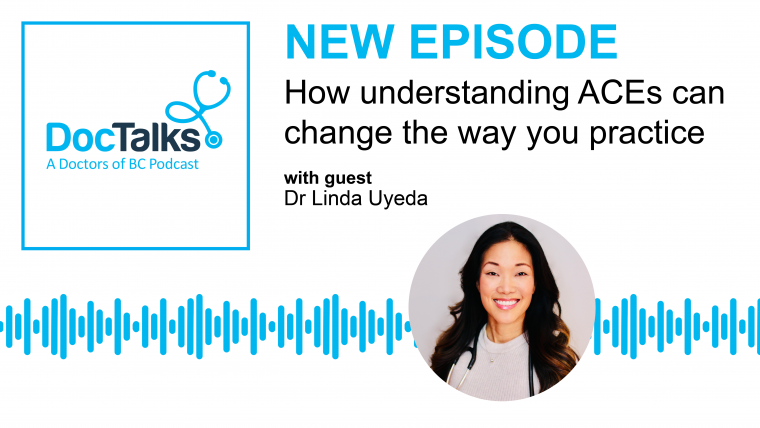“I don’t need to open old wounds, I need to recognize that the trauma is there. I need to understand the physiologic changes, [and] to bring some compassion. As I have brought this into my own practice, my sense of feeling like I can do something to actually help people heal…that’s where my bucket gets filled up.” – Dr Linda Uyeda
With the added stressors placed on children, youth, and families by the COVID-19 pandemic, more attention has been focused on the adverse impact on the mental health and wellness of our young people. Protecting and mitigating the impact of adverse childhood experiences (ACEs) has been a prime concern for many physicians.
Ever since the 1990s landmark study about ACEs was conducted, there has been a shift by the medical community and other sectors to move towards a more trauma-informed and compassionate approach to those who have been impacted.
But there’s a long way to go to educate and build skills to mitigate ACEs, and to ensure supports are implemented to prevent them from occurring in the first place.
In this episode of DocTalks, we talk to Dr Linda Uyeda who, after the birth of her first child 18 years ago, expanded her medical education to explore neuroscience, parenting, trauma, and attachment. We learn about the physiological impact of trauma and ACEs on our minds and bodies, and how understanding the science can shift thinking to make a difference to the way doctors’ practice and the support they provide to patients. Dr Uyeda discusses the relationship between attachment issues and ACEs, and paves the way for a holistic discussion about attachment theory, compassion, empathy and continual learning.
thinking to make a difference to the way doctors’ practice and the support they provide to patients. Dr Uyeda discusses the relationship between attachment issues and ACEs, and paves the way for a holistic discussion about attachment theory, compassion, empathy and continual learning.
Dr Uyeda is a member of a Child and Youth Mental Health Community of Practice involving 270 physicians who work to improve care for BC’s children youth and families. She continues to educate parents, counsellors, teachers, and physicians with her research and findings.
Available for download on all podcast platforms or click below to listen.
Interested in this interview, but don’t have time to listen to the podcast? A summary of the conversation can be found here.
Resources:
- Feelings First campaign
- Dr Nadine Burke Harris – How Childhood Trauma affects health across a lifetime
- Dr Vincent Feletti – How childhood trauma can make you a sick adult
- Collaborative Toolbox – ACEs Resources
- Beyond the Cycle of Trauma with Dr Erika Cheng
- The Brain Story - Alberta Family Wellness
- Therapist Uncensored Podcast
- Recommended episodes
- Episode 5 and 6: How Attachment Impacts Adult Relationship Part 1 & 2
- Episode 75: Mentalizing - Critical Component for Secure Relating
- Episode 102: Finding Neurological Safety through Relationships
- Episode 112: The Life-Changing Science of Memory Reconsolidation with Guests Bruce Ecker & Tori Olds
- Episode 141: How We Become the Persons We Are with Dr Sroufe, Attachements Through the Lifespan
- Recommended episodes
Books:
- Becoming Attached by Robert Karen
- Parenting from the Inside Out: How a Deeper Self-Understanding Can Help You Raise Children Who Thrive by Daniel J. Siegel and Mary Hartzell
- What to Say to Kids When Nothing Seems to Work by Dr Ashley Miller and Dr Adele Lafrance
- The Body Keeps the Score by Bessel Van Der Kolk
- The Boy who was Raised as a Dog by Bruce Perry and Maia Szalavitz
